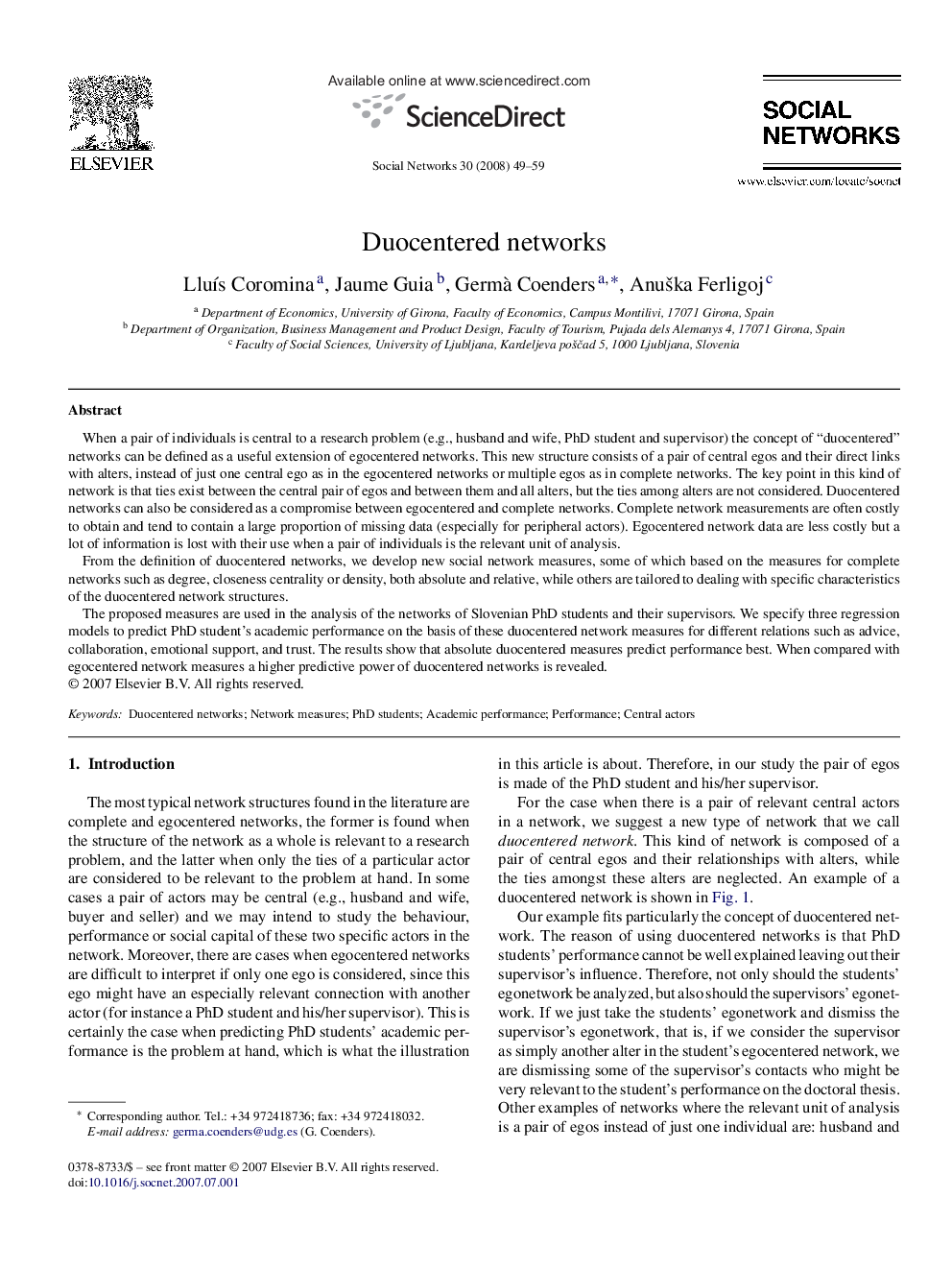| Article ID | Journal | Published Year | Pages | File Type |
|---|---|---|---|---|
| 1129614 | Social Networks | 2008 | 11 Pages |
When a pair of individuals is central to a research problem (e.g., husband and wife, PhD student and supervisor) the concept of “duocentered” networks can be defined as a useful extension of egocentered networks. This new structure consists of a pair of central egos and their direct links with alters, instead of just one central ego as in the egocentered networks or multiple egos as in complete networks. The key point in this kind of network is that ties exist between the central pair of egos and between them and all alters, but the ties among alters are not considered. Duocentered networks can also be considered as a compromise between egocentered and complete networks. Complete network measurements are often costly to obtain and tend to contain a large proportion of missing data (especially for peripheral actors). Egocentered network data are less costly but a lot of information is lost with their use when a pair of individuals is the relevant unit of analysis.From the definition of duocentered networks, we develop new social network measures, some of which based on the measures for complete networks such as degree, closeness centrality or density, both absolute and relative, while others are tailored to dealing with specific characteristics of the duocentered network structures.The proposed measures are used in the analysis of the networks of Slovenian PhD students and their supervisors. We specify three regression models to predict PhD student's academic performance on the basis of these duocentered network measures for different relations such as advice, collaboration, emotional support, and trust. The results show that absolute duocentered measures predict performance best. When compared with egocentered network measures a higher predictive power of duocentered networks is revealed.
